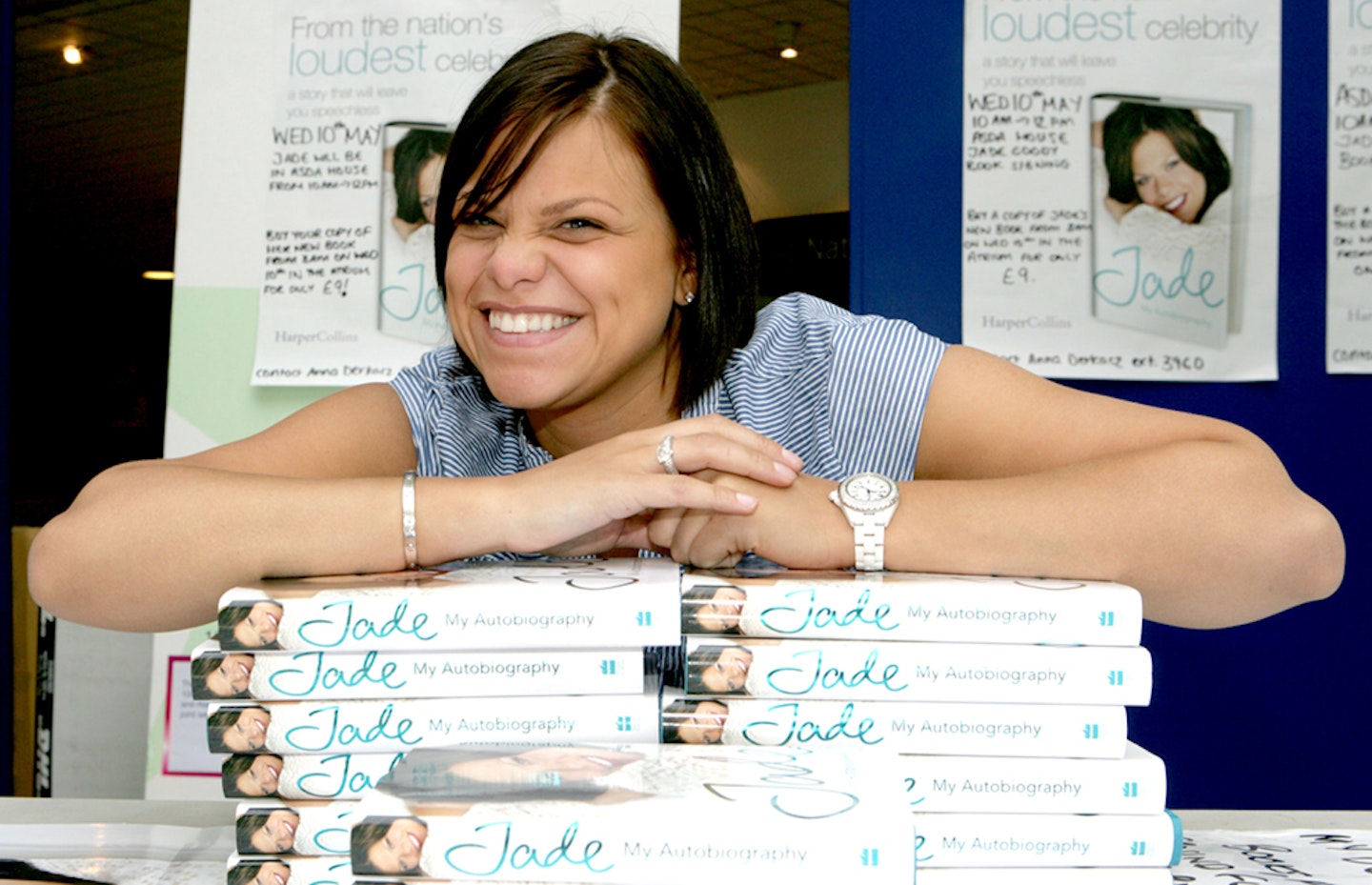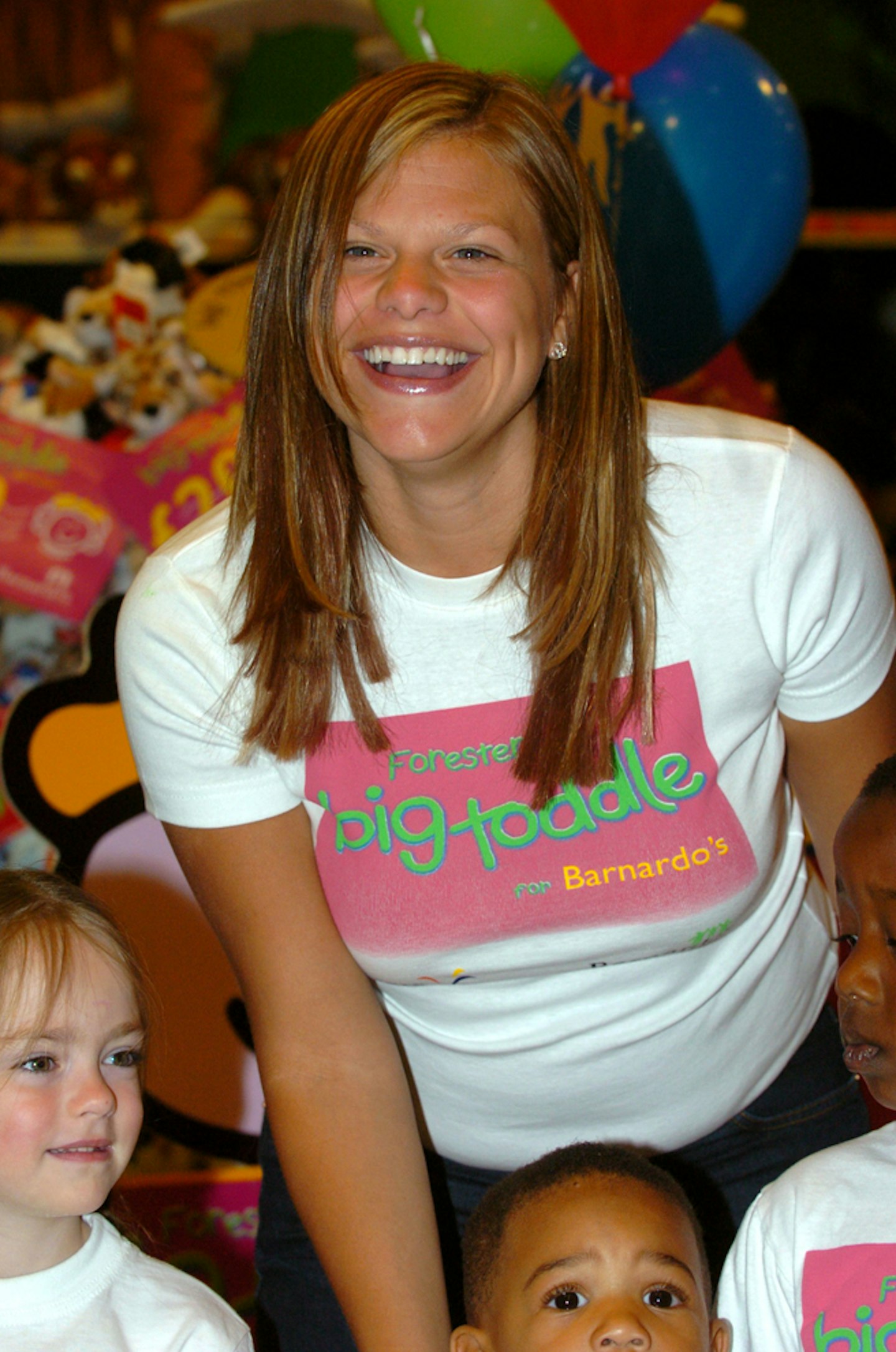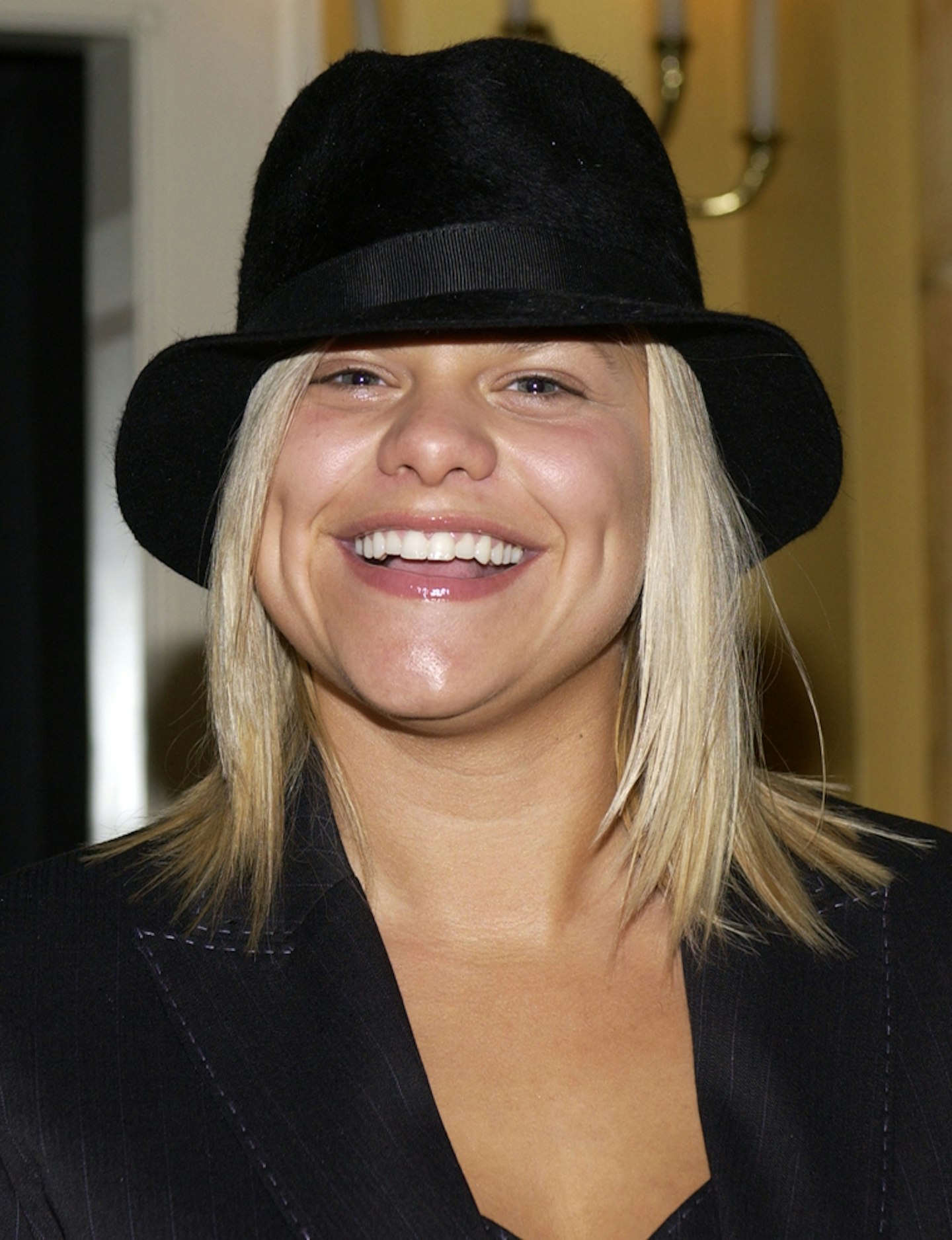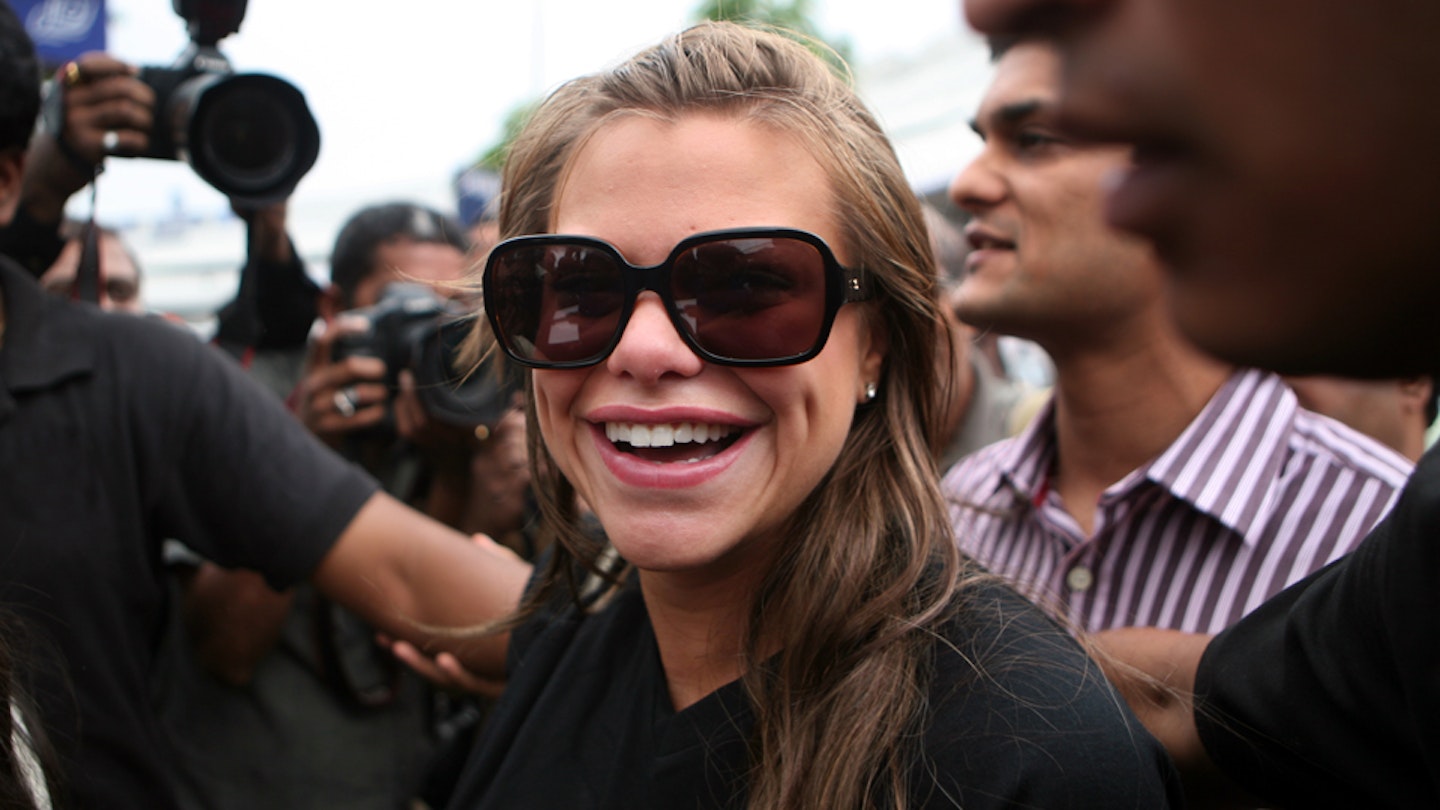She was once famously labelled a “pig” on the front page of The Sun, yet her perfume outsold those of Britney Spears, J-Lo and David Beckham. She was named one of the most influential celebs of her time, but in 2006 she left the London Marathon in an ambulance after attempting to run it in tennis shoes, wearing a Gucci bum bag that contained nothing but a lipstick.
Jade Goody was one of the most divisive, vilified and controversial people we have covered within the pages of heat and she ended up becoming a good friend.
She was also brutally honest, genuine, charismatic and utterly compelling. And from the minute she landed in our lives as a housemate in Big Brother 3 in 2002, readers were mesmerised, watching open-mouthed as she ripped up the rule book of celebrity.

In the world PJ (pre-Jade), the most candid sight of a celeb we could hope to see was Jennifer Aniston “taking the bins out”. But Jade heralded a whole new breed of star – this one wasn’t just putting out her own trash, she was spilling her guts out on the pavement for all to see and judge. It was this openness and vulnerability that made heat and its readers fall in love with her. When she showed her “kebab” belly to the nation on Big Brother after a drunken game of strip poker, we wanted to run in and cover her up like she was one of our mates who’d had one too many tequilas.
But this big-mouthed, big-hearted girl from Bermondsey wasn’t initially greeted with such warmth by the rest of the media. For the first time in history, The Sun and Mirror were in agreement – Jade was the most hated women in Britain (although The Sun went the furthest with its campaign to “Vote the pig out”).
Even the feminist Germaine Greer said, “The fat slag deserves all she gets.” Not quite the supportive sisterhood we’ve come to expect from today’s media landscape – but then Jade was a figure who couldn’t have existed in any other time. She led a seismic change in celebrity culture in which anyone could become a star.

Jade ended up finishing fourth in BB, by which time the media had made an about-turn. Everyone was desperate to get her on their cover, but it was heat she chose. She posed like Marilyn Monroe, in a pink satin dress, eating a bag of chips. Inside, we pictured her as the angel and the devil, representing the two sides of her that divided the nation so much. She was a breath of fresh air in the world of stuck-up celebrity and wore her heart not just on her sleeve, but plastered all over her forehead.
Jade became our most popular cover star ever, outselling Victoria Beckham by thousands. One TV commissioner described her as “liquid gold” – people just couldn’t get enough of her.
Jade represented hope and escape for a lot of people. The political climate at the time was Blair’s Britain – young, cool and optimistic. It was a new millennium, and Jade levelled the celebrity playing field, making it seem like anything was possible. Suddenly, she was on first-class flights rubbing shoulders with the likes of Orlando Bloom and Kate Moss. Kate said she was a massive fan and invited Jade to a party at her house (Jade declined because she felt like she wouldn’t know what to say when she got there).

I was the journalist who interviewed her for heat throughout her career and became her mate – she confided in me about having bulimia, I saw her new boobs before she’d even got them home from the hospital, and I was the first person she rang in tears after being evicted from her ill-fated stint on Celebrity Big Brother in 2007. And she broke down as she told me she had missed so many cervical smears, she now had terminal cancer.
As well as interviewing her, I ghost-wrote her books. She would come round to my house and sit on my bed, laughing one minute and crying the next, like one big therapy session, revealing everything from her drug addict dad and smoking a joint aged five, to being a carer for her disabled mum. If you were an alien from outer space, you’d think she was a made-up character – and indeed her harshest critics accused her of putting on “an act”. But there was nothing made up about Jade, she was as real as they came. She just had dramas surrounding her wherever she turned – from arrests, fires and foster-care, to kidnappings and violent relationships. Her life was chaotic right up to the end, but somehow throughout even the toughest times, she found a light and a humour that made her so magnetic.
Claudia Rosencrantz, former Director of Living TV, which screened most of Jade’s TV shows (including the one covering her final few weeks, Jade: With Love), said, “She had something the greatest TV personalities have, like Simon Cowell, Ant & Dec, Gordon Ramsay – they have a personality that is stronger than any format you put them in. You want to spend time with them.”

Jade certainly made mistakes (there were some monumental f**k ups), but she always tried to right her wrongs – even if it meant people would say she was “faking it”. She was even accused of “milking” her cancer by one celeb, who ended up having to apologise afterwards. But Jade wasn’t capable of milking anything. All she did was open up her whole life to the world, because that was the way she could earn money for her kids, Bobby and Freddie . Her ultimate driving force was to give them the stable family environment she never had.
And there was no starker reminder of this than in her final few months. Jade propelled reality TV culture into a whole new sphere with how her death played out, with every part of her sad journey sold and talked about so she could provide for her sons. There was even a website called “When will Jade Goody die?”, which offered an iPod to the person who predicted the correct date of her death.
In the end, her decision to allow TV cameras to film her inal few weeks, including her wedding to Jack Tweed, was groundbreaking. Her legacy warned of the danger of missing appointments for cervical smears, and the consequent rise in screenings was hailed the “Jade Goody effect” (something that has sadly dropped so much that there’s currently a government campaign to raise awareness once more).
Ultimately, whatever people thought of Jade, by the time of her death at the age of 27, she had made an indelible impact on celebrity culture. As Claudia Rosencrantz said, “She became this shining beacon of dignity, humour, beauty. In true adversity her true personality came out. “She had the courage to make death part of life.”
For a look back at Jade's incredible life, pick up the latest issue of heat magazine OUT NOW.
